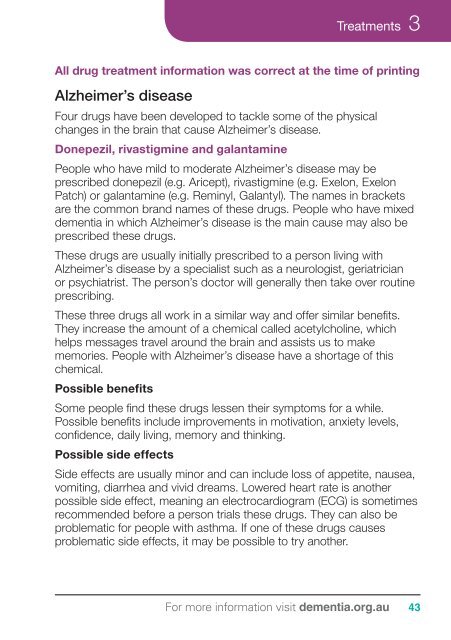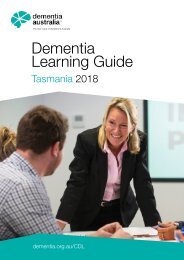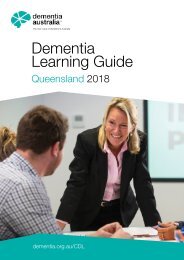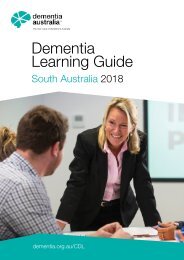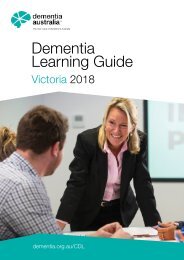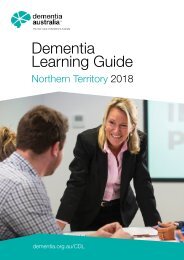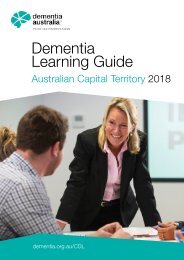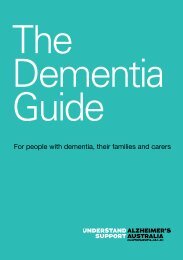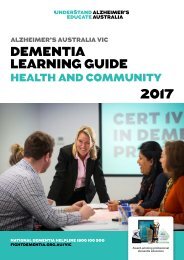Dementia Australia | The Dementia Guide
The Guide will also be used by the family and friends of someone with dementia, as it will contain information for anyone taking on a caring role. It will help people to understand more about dementia and the emotional impact of a diagnosis, the available drug treatments, and support and services that are available. It will include information about living well with dementia and about making plans for the future.
The Guide will also be used by the family and friends of someone with dementia, as it will contain information for anyone taking on a caring role. It will help people to understand more about dementia and the emotional impact of a diagnosis, the available drug treatments, and support and services that are available. It will include information about living well with dementia and about making plans for the future.
Create successful ePaper yourself
Turn your PDF publications into a flip-book with our unique Google optimized e-Paper software.
Treatments 3<br />
All drug treatment information was correct at the time of printing<br />
Alzheimer’s disease<br />
Four drugs have been developed to tackle some of the physical<br />
changes in the brain that cause Alzheimer’s disease.<br />
Donepezil, rivastigmine and galantamine<br />
People who have mild to moderate Alzheimer’s disease may be<br />
prescribed donepezil (e.g. Aricept), rivastigmine (e.g. Exelon, Exelon<br />
Patch) or galantamine (e.g. Reminyl, Galantyl). <strong>The</strong> names in brackets<br />
are the common brand names of these drugs. People who have mixed<br />
dementia in which Alzheimer’s disease is the main cause may also be<br />
prescribed these drugs.<br />
<strong>The</strong>se drugs are usually initially prescribed to a person living with<br />
Alzheimer’s disease by a specialist such as a neurologist, geriatrician<br />
or psychiatrist. <strong>The</strong> person’s doctor will generally then take over routine<br />
prescribing.<br />
<strong>The</strong>se three drugs all work in a similar way and offer similar benefits.<br />
<strong>The</strong>y increase the amount of a chemical called acetylcholine, which<br />
helps messages travel around the brain and assists us to make<br />
memories. People with Alzheimer’s disease have a shortage of this<br />
chemical.<br />
Possible benefits<br />
Some people find these drugs lessen their symptoms for a while.<br />
Possible benefits include improvements in motivation, anxiety levels,<br />
confidence, daily living, memory and thinking.<br />
Possible side effects<br />
Side effects are usually minor and can include loss of appetite, nausea,<br />
vomiting, diarrhea and vivid dreams. Lowered heart rate is another<br />
possible side effect, meaning an electrocardiogram (ECG) is sometimes<br />
recommended before a person trials these drugs. <strong>The</strong>y can also be<br />
problematic for people with asthma. If one of these drugs causes<br />
problematic side effects, it may be possible to try another.<br />
For more information visit dementia.org.au 43


